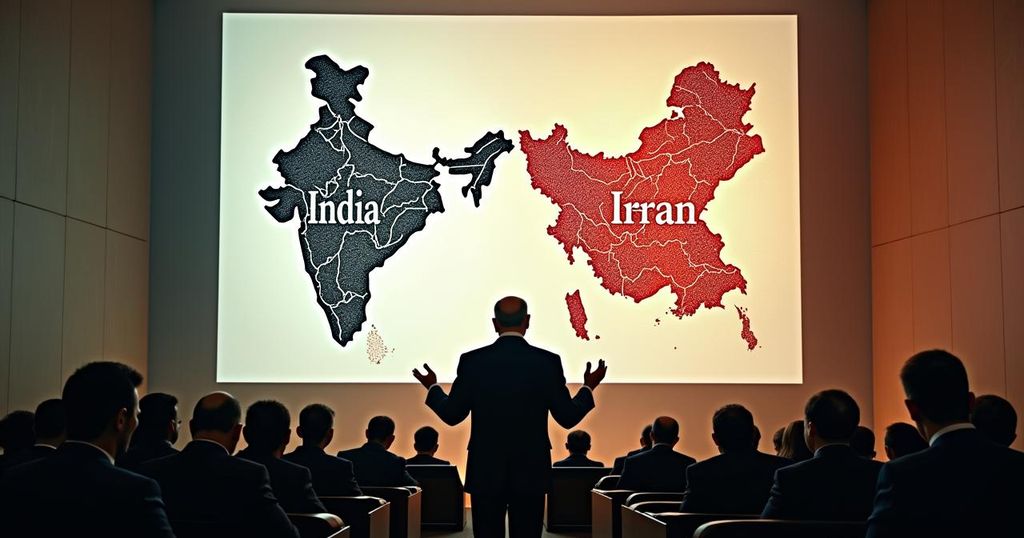Netanyahu Highlights Geopolitical Divide at UN with Maps of ‘Blessing’ and ‘Curse’
Israeli Prime Minister Benjamin Netanyahu addressed the UN, showcasing two maps to depict India as a ‘blessing’ and Iran as a ‘curse.’ He claimed that Iran’s actions create a threat across the Middle East, while Israel and Arab partners symbolize hope for collaboration and development. Netanyahu stressed that Iran’s unchecked aggressions pose risks to global security and reiterated Israel’s commitment to defending itself against threats like Hezbollah.
During his address at the United Nations General Assembly, Israeli Prime Minister Benjamin Netanyahu made a poignant distinction between nations in the Middle East and beyond, utilizing two maps to illustrate his point. He labeled India as a ‘blessing’ and Iran as a ‘curse,’ emphasizing the geopolitical tensions and alliances in the region. The map portraying Iran was dark, including Iran, Iraq, Syria, and Yemen, depicted the “arc of terror” that Iran purportedly instigates, affecting nations from the Indian Ocean to the Mediterranean. Conversely, the ‘blessing’ map featured Egypt, Sudan, Saudi Arabia, and India in green, representing Israel and its neighboring Arab partners creating a connection between Asia and Europe. Netanyahu expressed that this collaboration would facilitate significant infrastructure projects, enhancing trade and connectivity for over 2 billion people. He further asserted that Iran’s aggressive ambitions pose threats not only to Israel but to every country in the Middle East and beyond. Netanyahu articulated, “If you think this dark map is only a curse to Israel, then you should think again,” underscoring that unchecked Iranian aggression could have global repercussions. In closing, he reiterated Israel’s commitment to neutralizing threats from Hezbollah and reaffirmed Israel’s right to defend itself, challenging misinformation directed at his nation during his address.
The geopolitical landscape of the Middle East is marked by longstanding tensions, particularly regarding Iran’s influence and its relationships with various militant groups, such as Hezbollah. The Israeli government under Netanyahu has frequently positioned Iran as a primary threat to regional stability, asserting that its actions have had destabilizing effects across multiple nations. In this context, Netanyahu’s maps serve not only as a visual representation of alliances and enmities but also as a means to advocate for international support against perceived threats, emphasizing the need for solidarity to counteract Iran’s influence effectively.
In conclusion, Prime Minister Netanyahu’s presentation at the UN emphasized a stark juxtaposition between the perceived threats posed by Iran and the potential for collaboration represented by nations like India. By distinguishing between a ‘curse’ and a ‘blessing,’ he aims to reinforce Israel’s stance on regional security and the importance of international recognition of these dynamics. The need for vigilance against aggression, particularly from Iran, is a central theme of his address, which seeks to garner ongoing support for Israel’s security initiatives.
Original Source: www.livemint.com




Post Comment